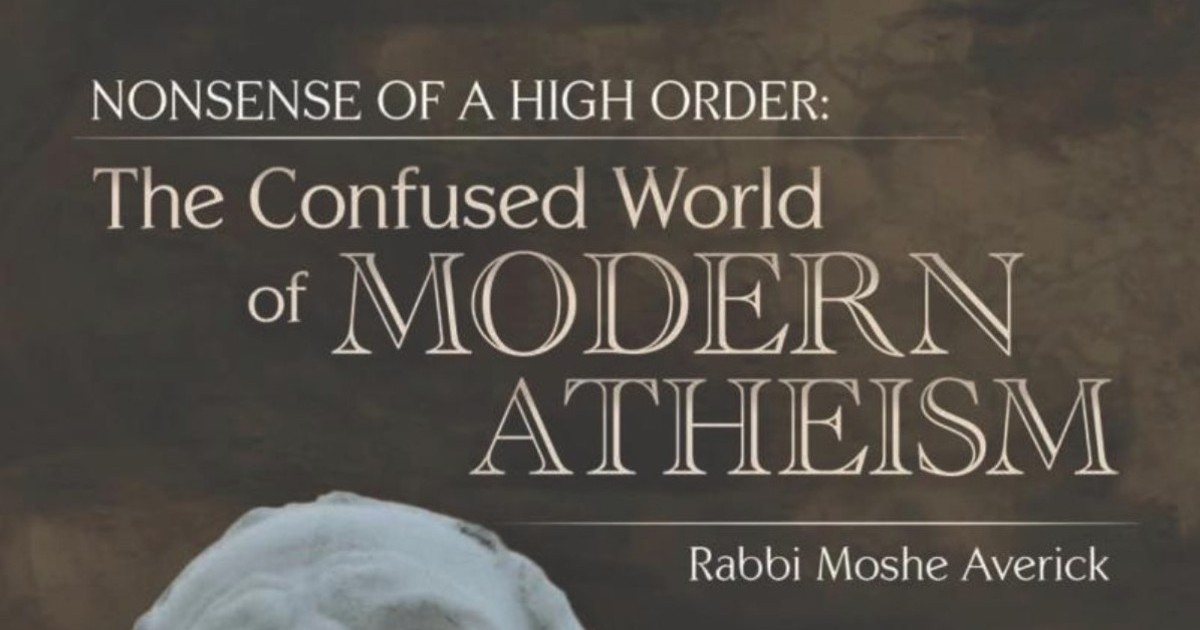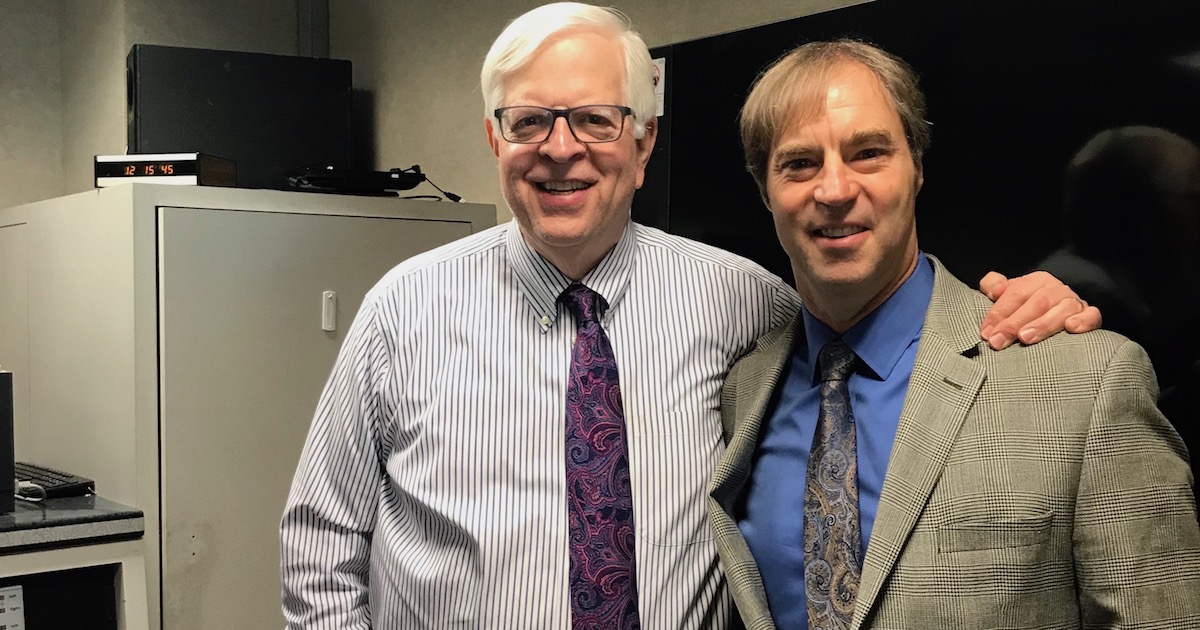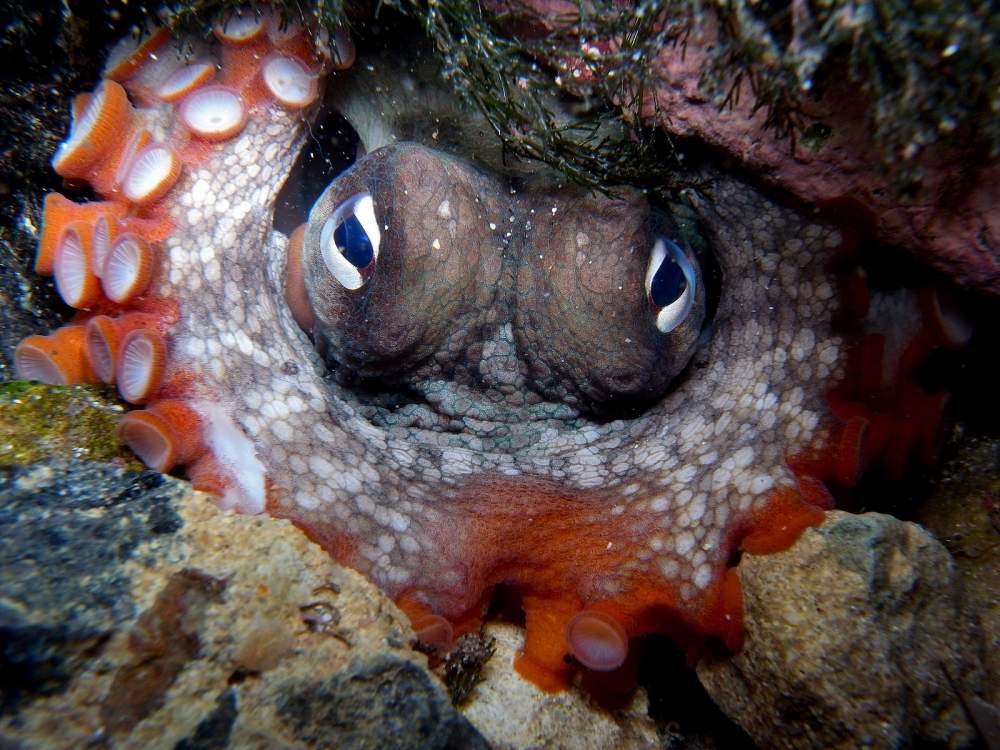

Meyer and Metaxas: Stephen Meyer’s Journey into Intelligent Design
On this episode of ID the Future, author and radio host Eric Metaxas interviews Stephen Meyer at the 2019 Dallas Conference on Science and Faith. Meyer, author of the New York Times bestseller Darwin’s Doubt and director of the Center for Science and Culture, tells how he started out asking the “why” questions — some of the same ones Isaac Newton had wondered about — questions that remain with us today. A few years later, in the 1980s, he happened onto a science/faith conference (also in Dallas), and that started him on his journey of studying, writing, and teaching on intelligent design. Please consider donating to support the IDTF Podcast.

Averick Takes on the “God of the Gaps” Objection
On this episode of ID the Future, Rabbi Moshe Averick, author of Nonsense of a High Order: The Confused World of Modern Atheism, responds to the objection that intelligent design is a feeble “God of the Gaps” approach, an argument from ignorance. Provocative and entertaining, Averick describes the attack as “less than feeble.” He says it isn’t because of what we don’t know, but because of what we do know. He offers as an illustration the widespread skepticism in the physics community toward the possibility of anyone ever building a perpetual motion machine. Their skepticism is not driven by ignorance of how to build such a machine, Averick notes. It’s driven by their knowledge of the fundamental laws of physics. Please consider donating to support the IDTF Podcast.
Rob Crowther Debriefs Jay Richards on the Dallas Conference on Science & Faith
On this episode of ID the Future, host Robert Crowther speaks with Discovery Institute Senior Fellow Jay Richards, a speaker at last weekend’s Dallas Conference on Science & Faith. Coming available soon on video, this conference featured Richards, Eric Metaxas, Stephen Meyer, and world-renowned synthetic organic chemist James Tour — plus a surprise guest. For all the great presenters there, though, Richards’ favorite feature of the conference was the thousand attendees — some of them skeptics — who stayed straight through to the close and beyond, asking questions and learning that science, more than ever, supports faith in a designing intelligence.

How Stephen Meyer Changed Dennis Prager’s Mind, Pt. 1
On this episode of ID the Future we hear part one of Dennis Prager’s remarkable Prager Show conversation with Dr. Stephen Meyer, director of the Discovery Institute’s Center for Science and Culture. Prager had been agnostic on evolution, but reading and talking with Meyer changed his mind, he says. And it wasn’t any religious concerns, Prager explains. It was the science. Please consider donating to support the IDTF Podcast.
Read More ›
Octopuses from the Sky: Scientists Propose “Aliens Seeded Life on Earth”
On this episode of ID the Future, host Sarah Chaffee and biologist Ann Gauger discuss panspermia, the topic of a peer-reviewed paper published recently by several very serious scientists. Panspermia tries to sidestep problems in origins biology by suggesting that, to quote the title of an old science fiction movie, “it came from outer space.” And yes, maybe even aliens sent it our way. Maybe (honest — this is a real theory) the first octopuses came here special delivery, as encapsulated embryos falling from the sky. Anything but intelligent design, for these very serious scientists.
Read More ›
Why Information is the Basis of the Universe
On this episode of ID The Future, Sarah Chaffee talks with physicist Dr. Brian Miller about a recent article that argues that the fundamental basis of the universe is information. In this episode, Miller explains how physicists have come to rethink the role of information, moving from a materialist view in which information is seen as a byproduct of matter to a view in which information is seen as fundamental to the fabric of the cosmos.

Jeremy England’s Physics-Based OOL Theory Under the Microscope
On this episode of ID the Future, Brian Miller, who holds a Ph.D. in physics from Duke University, examines Dr. Jeremy England’s physics-based theory of the origin of life. England’s theory, based on his studies of “non-equilibrium systems,” suggests that a system driven strongly enough could create order and therefore be a potential explanation for the origin of life. Miller summarizes the theory and discusses what he sees as its fatal weaknesses.

Brian Miller on Why Free Energy Means No Free Lunches for the Origin of Life
On this episode of ID the Future, Brian Miller discusses common myths about the origin of life. Listen in to learn more about how low entropy and information differ, what the concept of free energy has to tell us about moving from non-life to the first life, and why physical processes cannot account for the information in the genetic code.
Read More ›
Tornadoes, Ice and Cells: How Does Thermodynamics Inform Origin-of-Life Scenarios?
On this episode of ID the Future, Brian Miller discusses the thermodynamics of the origin of life. Listen in to learn more about equilibrium, self-organization, and how the cell defies natural tendencies towards high entropy and low energy. Materialistic explanations seem to hit a wall when examining the physics of abiogenesis.